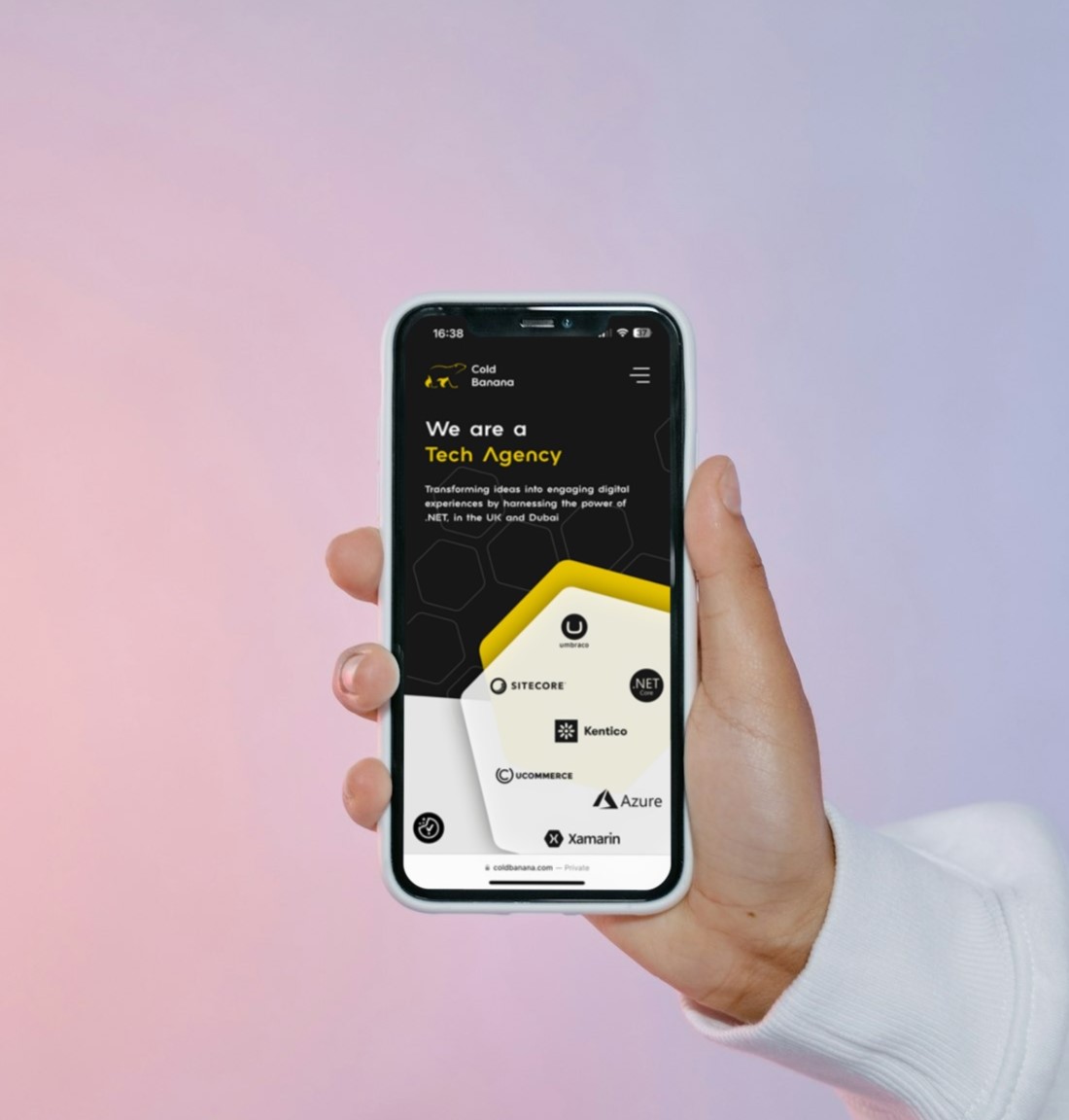
It’s no secret that the amount of mobile users has soared in the last decade, but did you know that mobile users have actually overtaken desktop users in terms of website traffic percentage?
It’s now a given in every industry that websites need to be responsive and accessible on different devices. The customer experience is increased by optimising websites for mobiles and apps. Research shows that over 50% of web traffic comes from mobile devices (April 2023) -something not worth missing out on with a poorly executed website.
Large businesses with large budgets may employ both a mobile website and app, but for most companies a decision between the two usually is made. We're here to break down the differences between responsive websites, mobile sites, PWA’s, and mobile apps and list their benefits and limitations.
A responsive website is a single website that displays itself differently on different devices. Users expect these nowadays and may lose trust in a website that does not function on the screen well. Responsive websites are an ideal option for small businesses with a small budget as it means only one website needs to be built.

Pros -
SEO: Having only one website and therefore only one URL can aid SEO, allowing page traffic to be easily collected due to all visitors going to the same web address.
Saving Costs: Having a responsive website can mean savings. Only designing, building and supporting one website is not only time efficient but can save money on service costs.
Cons -
Flexibility: On responsive websites you have to make images and icons responsive which takes extra time. Responsive websites may also have longer loading times.
Internet Connection: Because you are still using the same URL for your mobile site as your desktop, website users will only be able to view the site while connected to the internet.
Mobile sites tend to be less common now, with responsive sites and apps being standard. On mobile sites the URL will include a ‘m’ and will function slightly differently to a responsive site. Mobile websites tend to be designed to give people fewer options to choose from and less data to load. The main action the user will need to take is going to be more prominent on the screen and appear as an obvious choice.

Pros -
Faster Run Speeds: Mobile websites can run faster than responsive websites because they have less information to load.
Improved User Experience: Mobile websites user experience tends to be better than responsive websites because the site is specifically designed with the mobile user in mind. Calls to actions and buttons will be placed in locations that are easy to reach on phones.
Cons -
Dual Maintenance: Mobile sites generally require the same amount of maintenance as their desktop version to keep running including development time, resources and content refreshes & updates.
Content: Any website that regularly updates its content will need to update two sets. Maintaining the same content on two websites can be a challenge without a robust back end system in place.
A stand-alone app is a packaged up bundle of files, installed and run from the device itself. It’s important to work out whether your type of business will see a return on investment from an app over a mobile optimised website.
Some apps will offer very similar content to match their websites, however, an app shouldn’t be another version of your site in app form. Apps should offer a way for users to perform tasks more efficiently. They should be easy to use and maybe integrate with other features like the camera or GPS. Native apps can be a great power tool if you want to encourage regular use.

Pros -
Notifications: Owning an app allows you to, with consent, deliver notifications straight to users devices. Notifications can be used to let customers know about news, updates and company information.
Availability: Users can access their downloaded native apps offline.
Cons -
Downloading Process: Finding an app, accepting terms and conditions and waiting for it to download takes a lot longer than finding a website.
Development: Every platform, such as IOS and Android, needs a separate set of code. It generally takes around 18 weeks to develop just one good quality native app. This time will increase based on added features.
Progressive Web Apps are websites that look, feel, and act just like apps and can be installed onto a tablet or phone device without the means of physically having to download anything from the app-store.
Whilst a Web App can be installed, it’s only partially saved to the device and only its core data is kept. Think of it purely as a hybrid of a native app and a responsive website.
Progressive WebApps also allow some offline use, allowing users to view data, update records or submit information while offline and any of these changes would be published once connectivity is resumed.

Pros -
Functionality: Progressive WebApps have similar functionality and appearance to native web apps making them user friendly. PWA’s can be installed and saved on a user's device which solves the issue of web page abandonment. PWA’s can also be accessed just as a URL, they don't need to be downloaded.
Faster Performance: As a hybrid, PWA’s load a lot faster than a typical mobile website, even with poor internet connection.
Cons -
Features: Apple doesn’t allow PWA’s to use some of it’s features such as FaceID, TouchID and Bluetooth.
Battery: PWA’s can cause fast battery drainage as they require use of the Central Processing Unit.
So there you have it, 4 separate approaches to connect with your customers through mobile. When it comes to which is best for your business it's purely down to your business model, clientele, and how much time and investment you want to put behind the project.
Whether you're looking for a responsive website, a mobile app, a native app, a PWA or something in between, we’ve got you covered. Send us your ideas!
